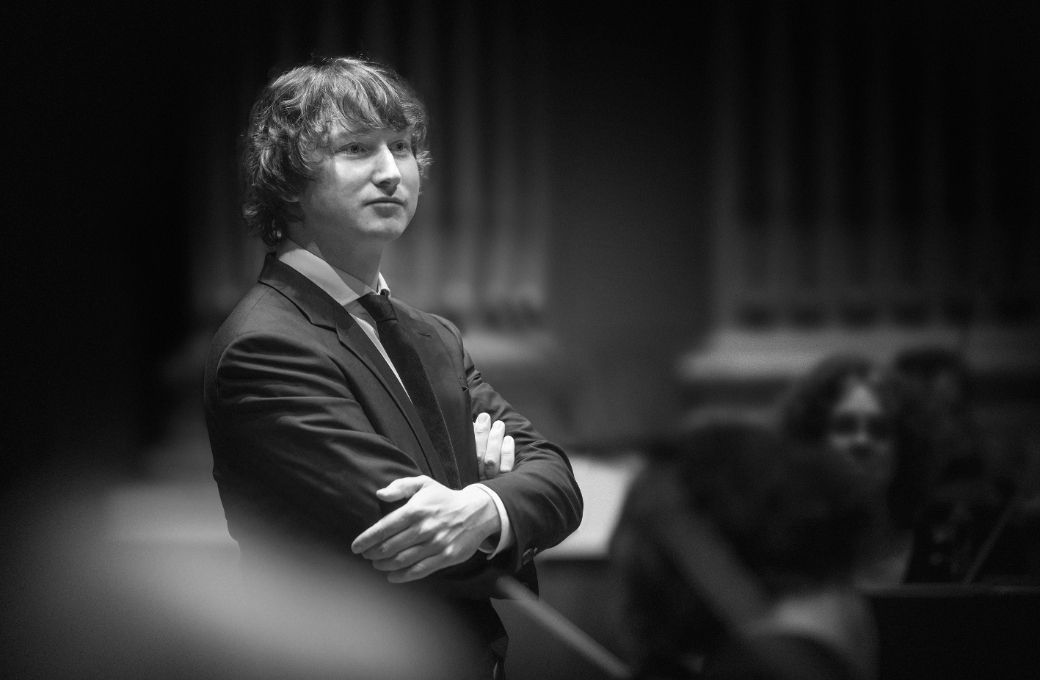Gregory Batsleer, the SCO Chorus Director is also the new Director of the London Handel Festival, yet it was Haydn’s trip to the Handel Festival in Westminster Abbey in 1791 we have to thank for The Creation. Inspired by hearing Handel’s Messiah and Israel in Egypt oratorios, Haydn planned his own biblical work, collecting an English libretto from the King James Bible and Milton’s Paradise Lost. The composer produced two versions according to translation; leading the Scottish Chamber Orchestra with period brass and continuo from the harpsichord, conductor Maxim Emelyanychev shook things up by opting for Die Schöpfung, an unusual choice for a UK performance, the cadences of the German text throwing new light on a familiar work.

Whatever one’s beliefs, the Creation is a marvellously vivid story, packed with dramatic Sunday School imagery. Parts 1 and 2 follow the biblical Creation, each day described by an angel followed by a chorus. Part 3 depicts Adam and Eve enjoying the bliss of the Garden of Eden before the Fall of Man, although they are warned at the end. The fun of Haydn’s joyful uplifting work is following the pictures in the music, the players taking us from the haunting Representation of Chaos with dissonant sweeping chords and lonely clarinet to the sudden blaze of light, the rasping trumpets and blast of the choral forces banishing the darkness. Emelyanychev oozed infectious mercurial delight as he coaxed musical storms, a slow-burning sunrise, the simple beauty of moonlight and a whole collection of birds, fish and animals from the orchestra. Woodwinds were particularly distinctive from trilling birds, jauntily pastoral flutes and a blast on the double bassoon for the heavy tread of big beasts.
The three soloists were well-matched with to the repertoire. Soprano Lydia Teuscher, standing in at short notice, was a charmingly sweet Gabriel, her light soprano opening out, adding a glorious top to the orchestra and chorus. Tenor Andrew Staples, no stranger to the role of Uriel, sounded light and golden in the sunrise and shimmering in the moonbeams. As Raphael, bass-baritone Hanno Müller-Brachmann had a big range with a warm upper timbre, rolling in the fresh watery billows with scurrying strings, later telling us of the great whales against the menacing tread of cellos and basses. The trio blended well together, and had to work hard driven by Emelyanychev’s boyish enthusiasm. For Part 3, Adam (Müller-Brachmann) and Eve (Teuscher) with their light tone and sensitive phrasing made a blissful couple, arriving hand in hand.
The lithe SCO Chorus was terrific under Batsleer. Just some 60 strong, including a handful of new singers on a Young Singers programme, their sound was balanced and secure when supporting the soloists and resonantly thrilling in the contrapuntal big choruses with crystal clear entries and a rounded full soprano sound.
Emelyanychev completely inhabited the piece, sensitively accompanying from the harpsichord for the recitatives but jumping up and directing his forces with energy and verve. The contrast of the magical moments of continuo calm, lyrical aria playing and the rousing orchestral blaze of trumpets and timpani for the big choruses kept the performance fresh as the new world created.


